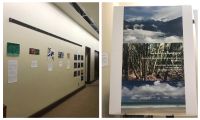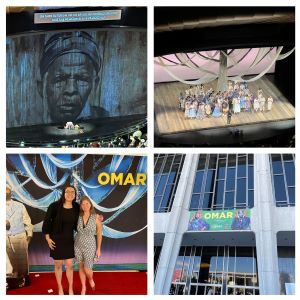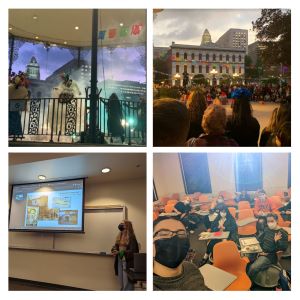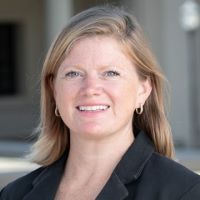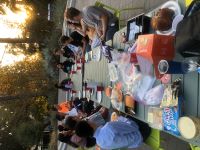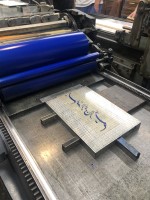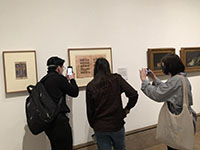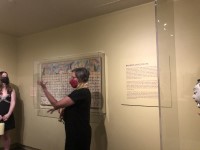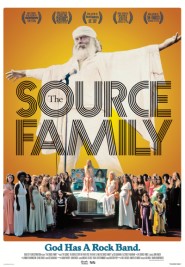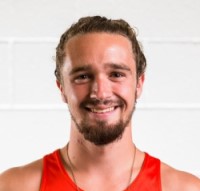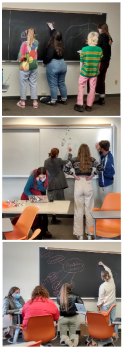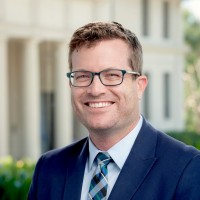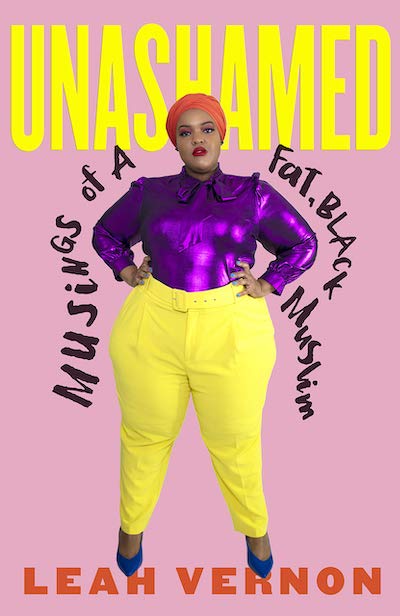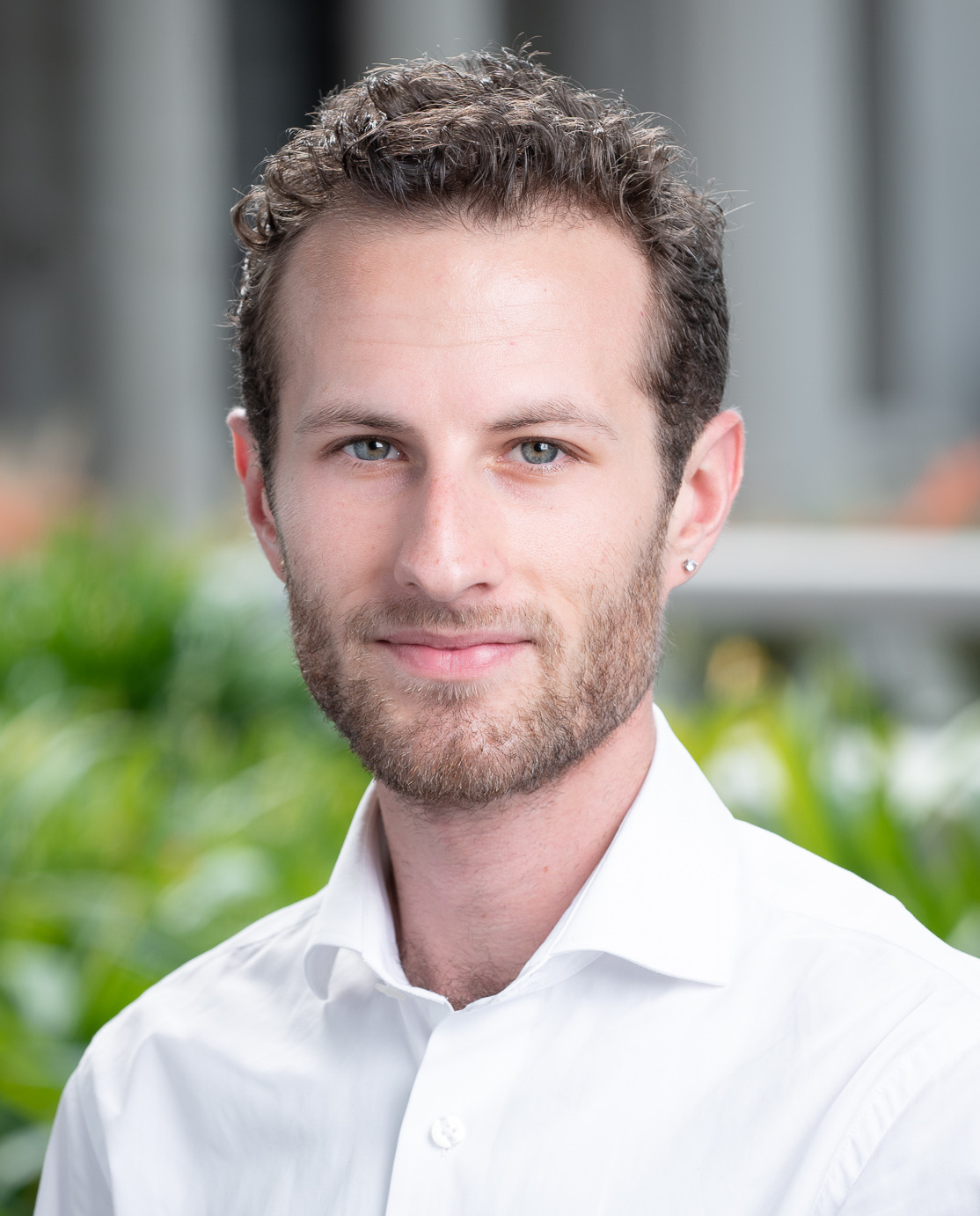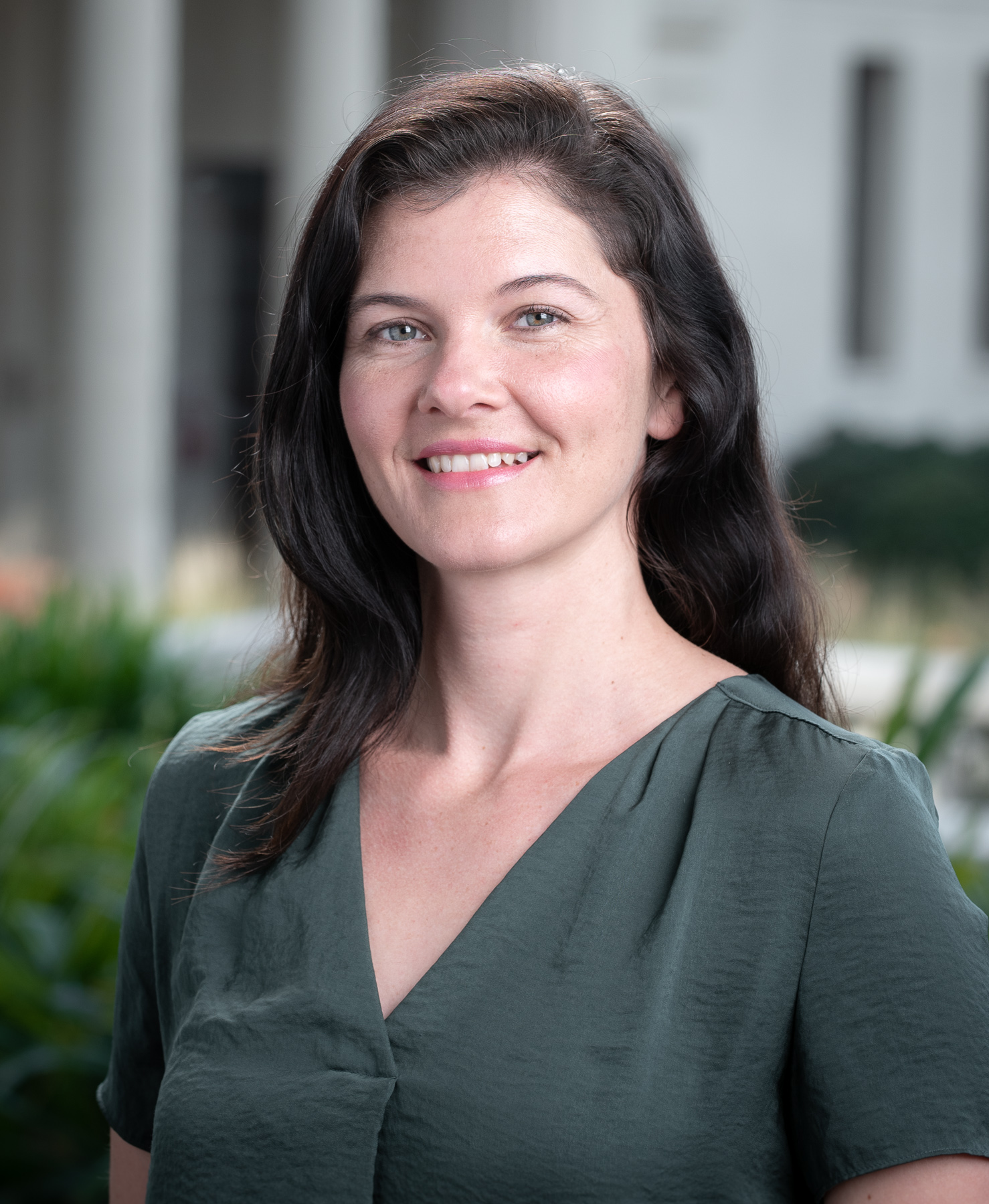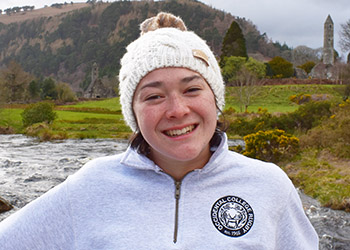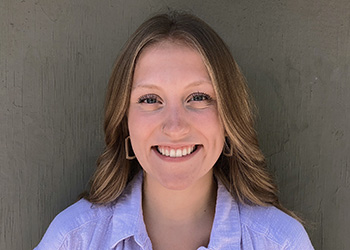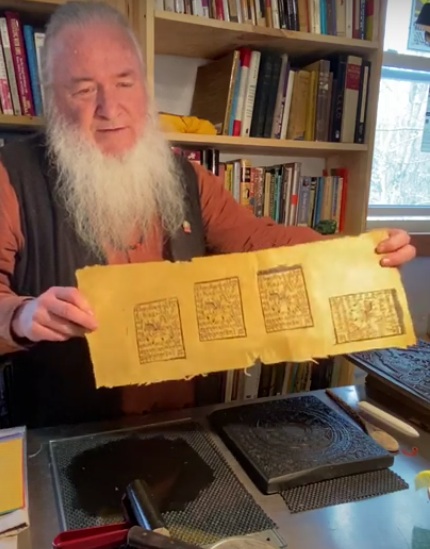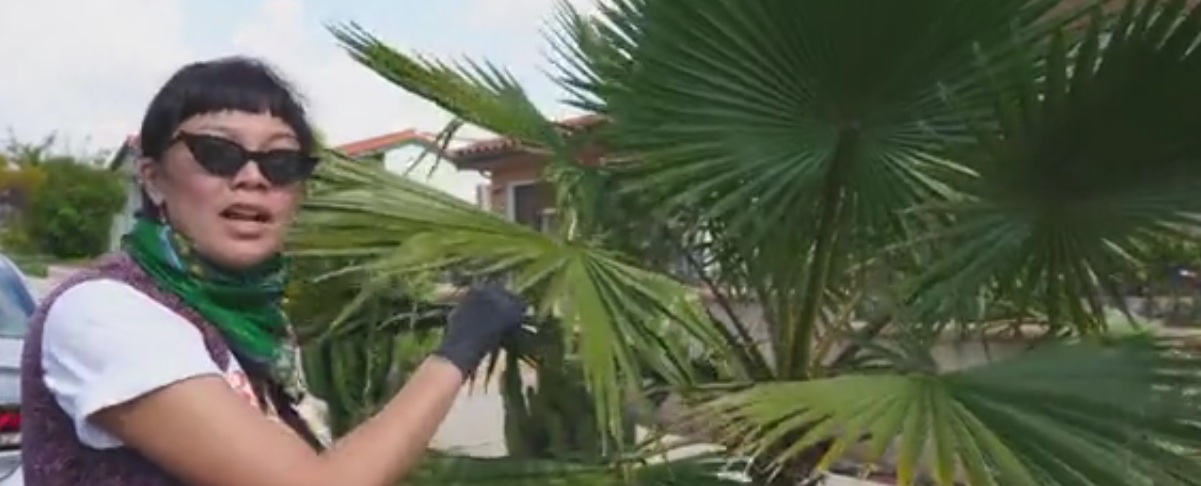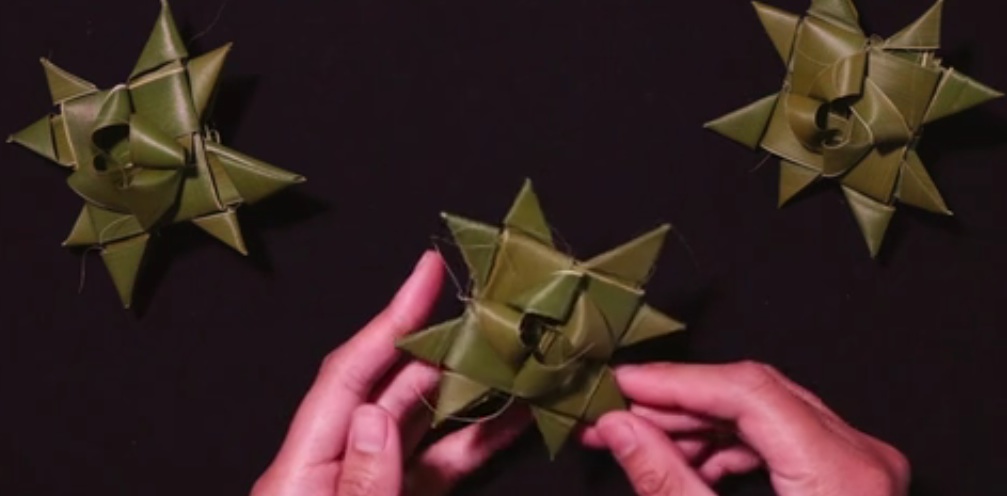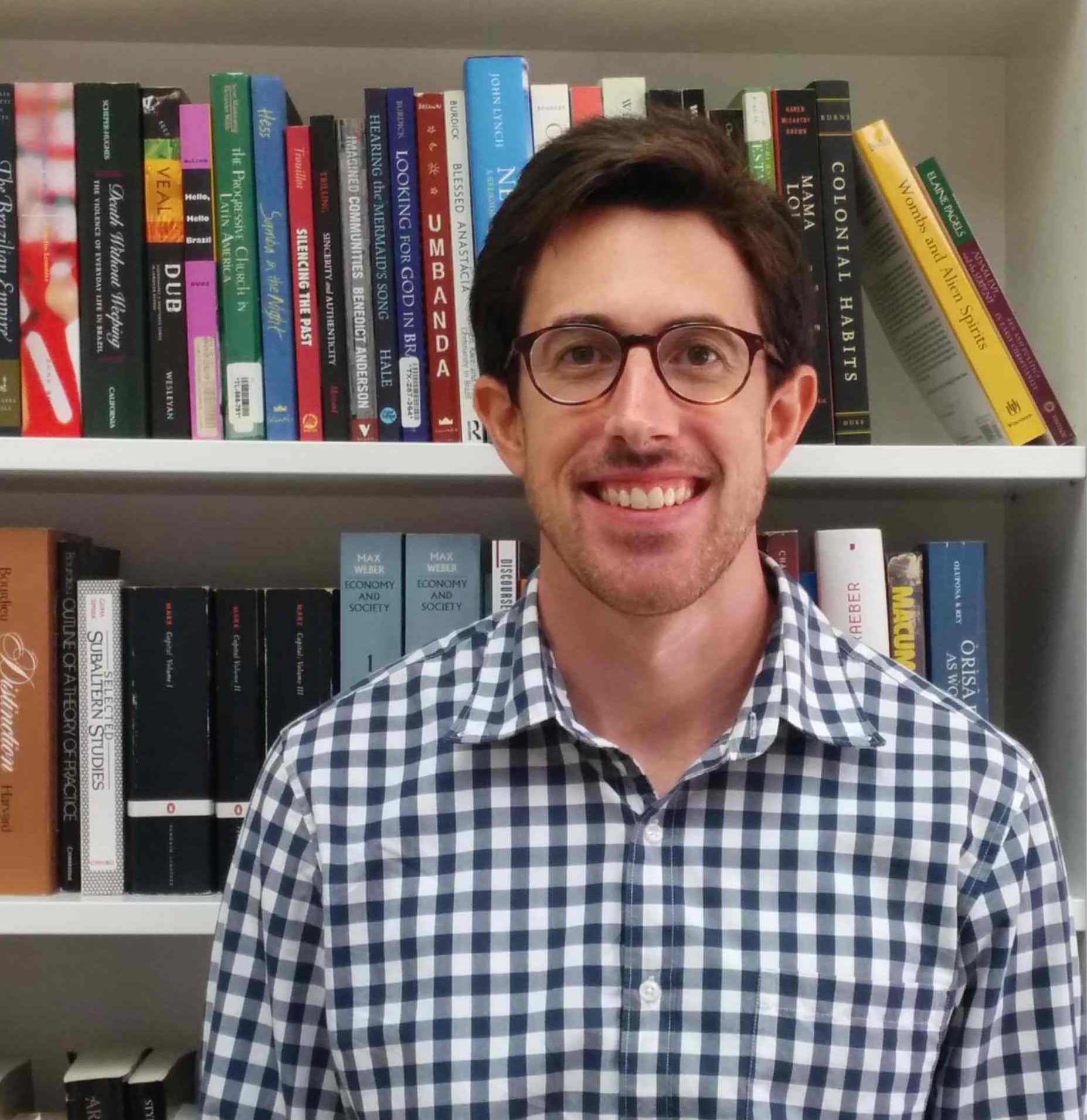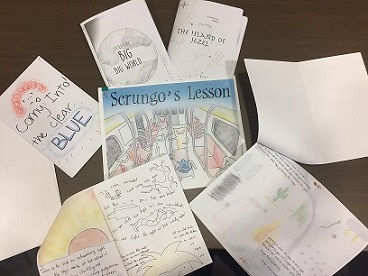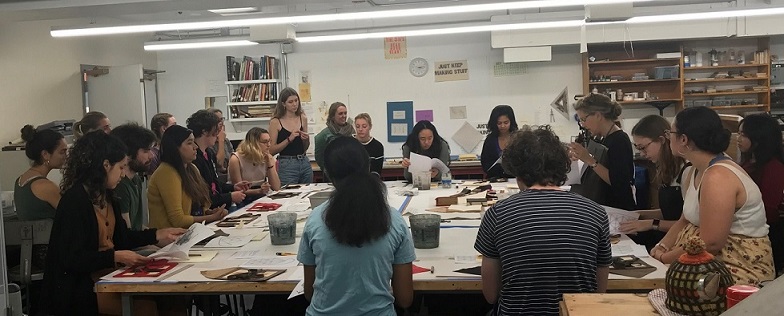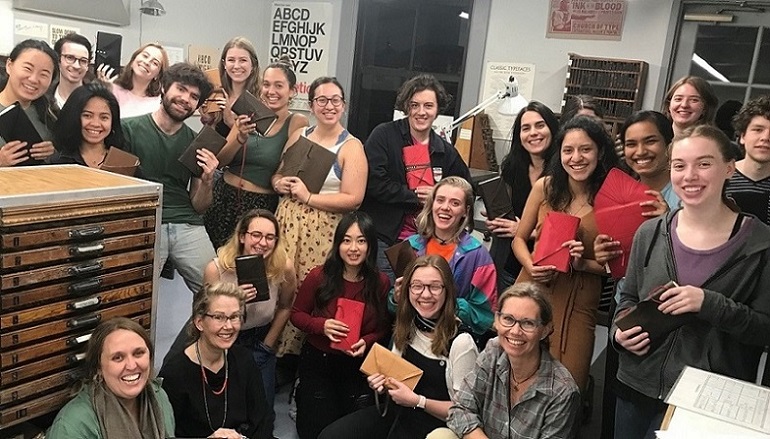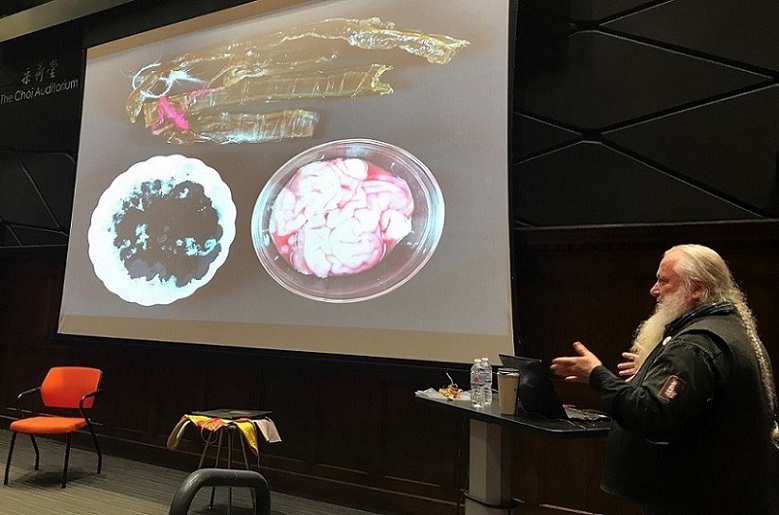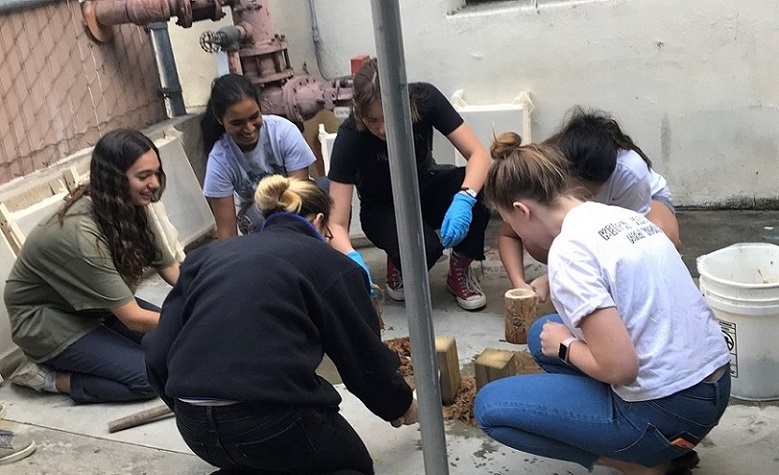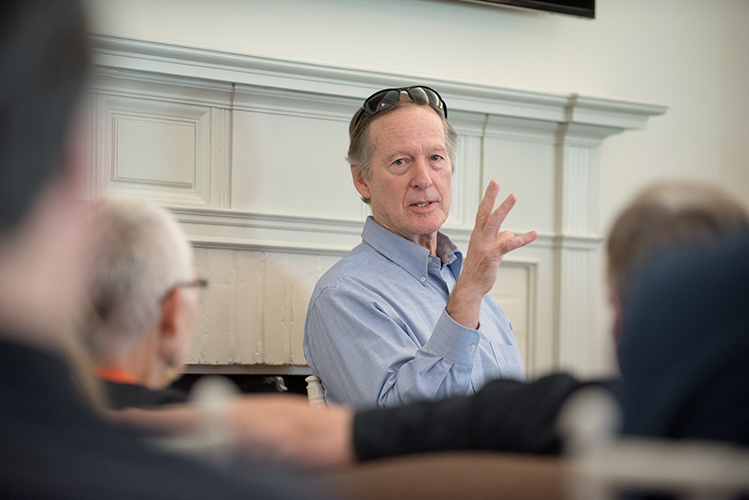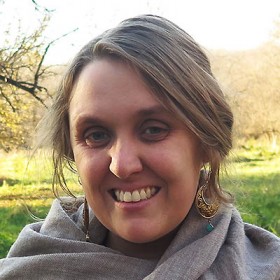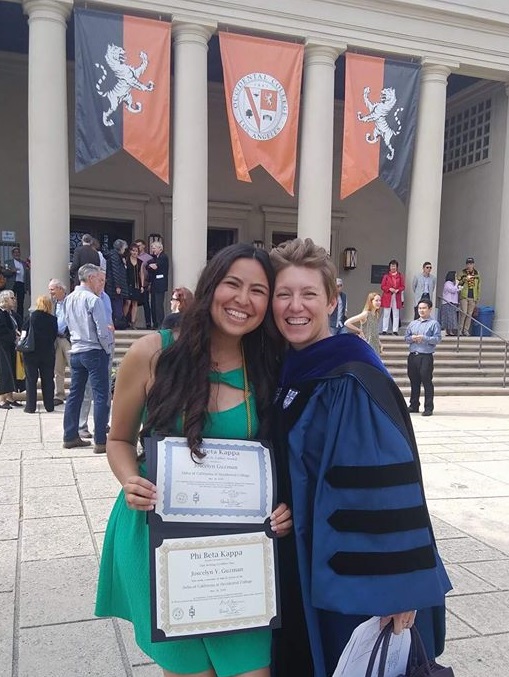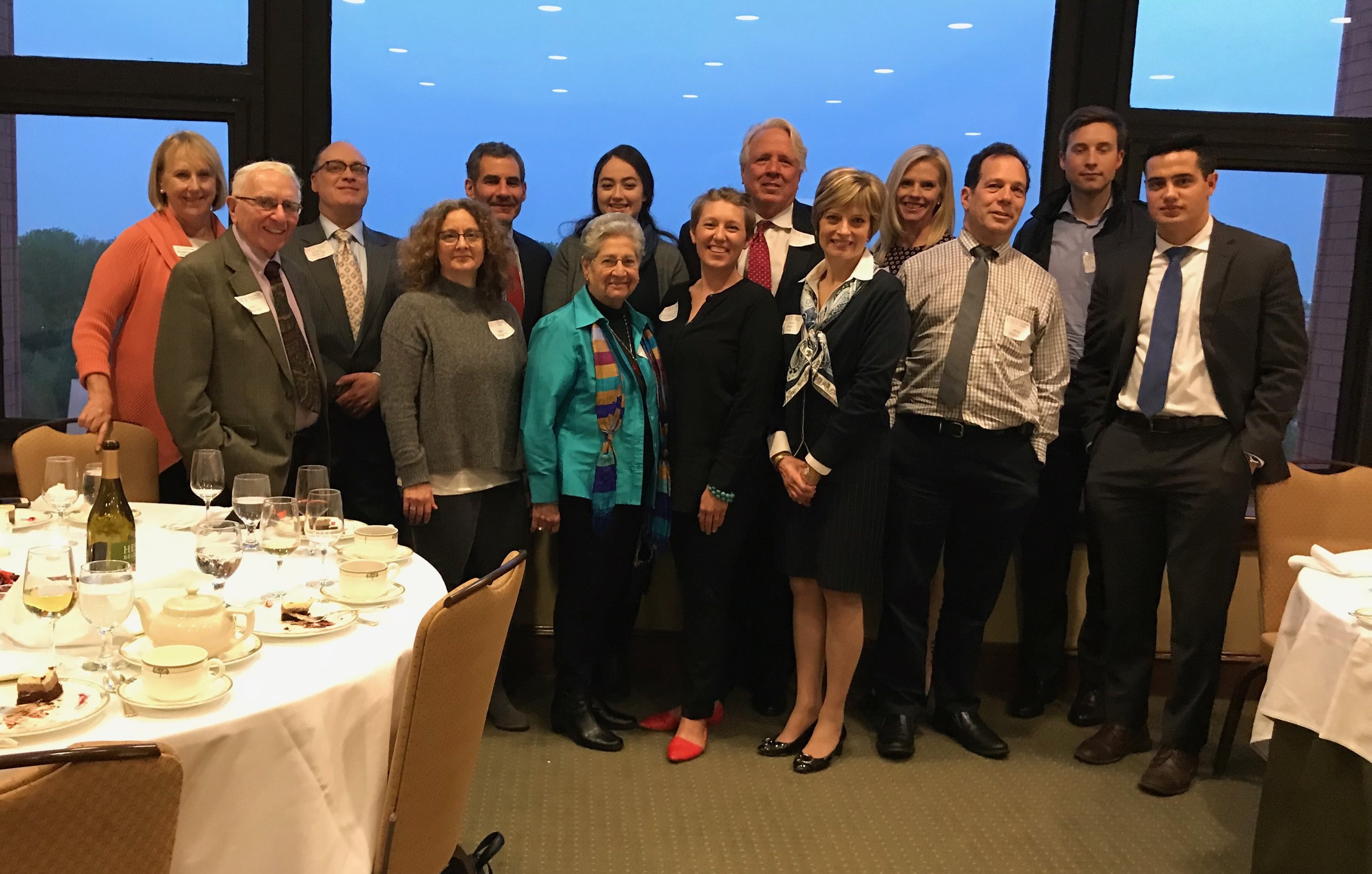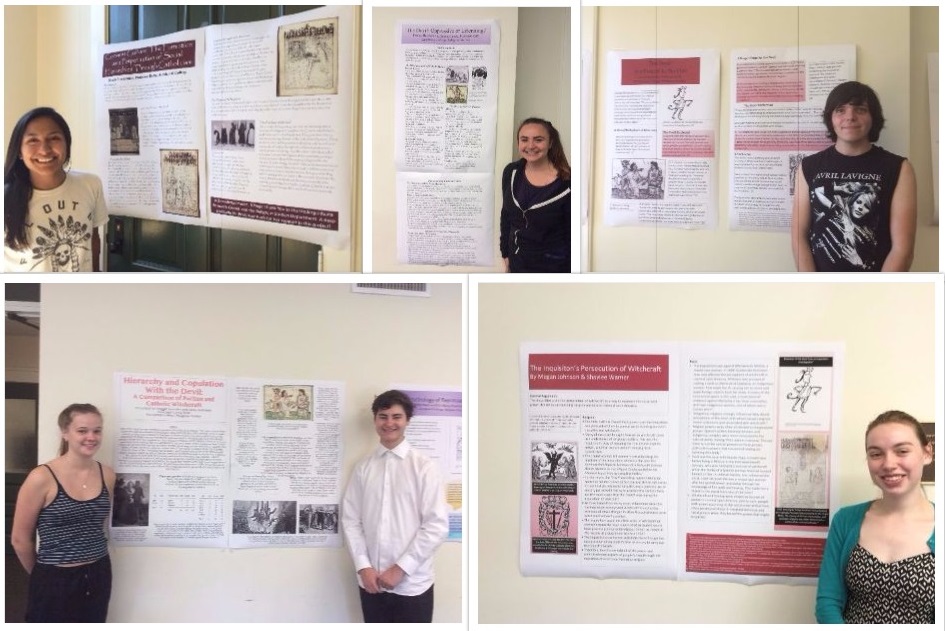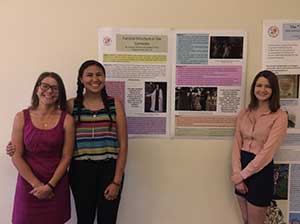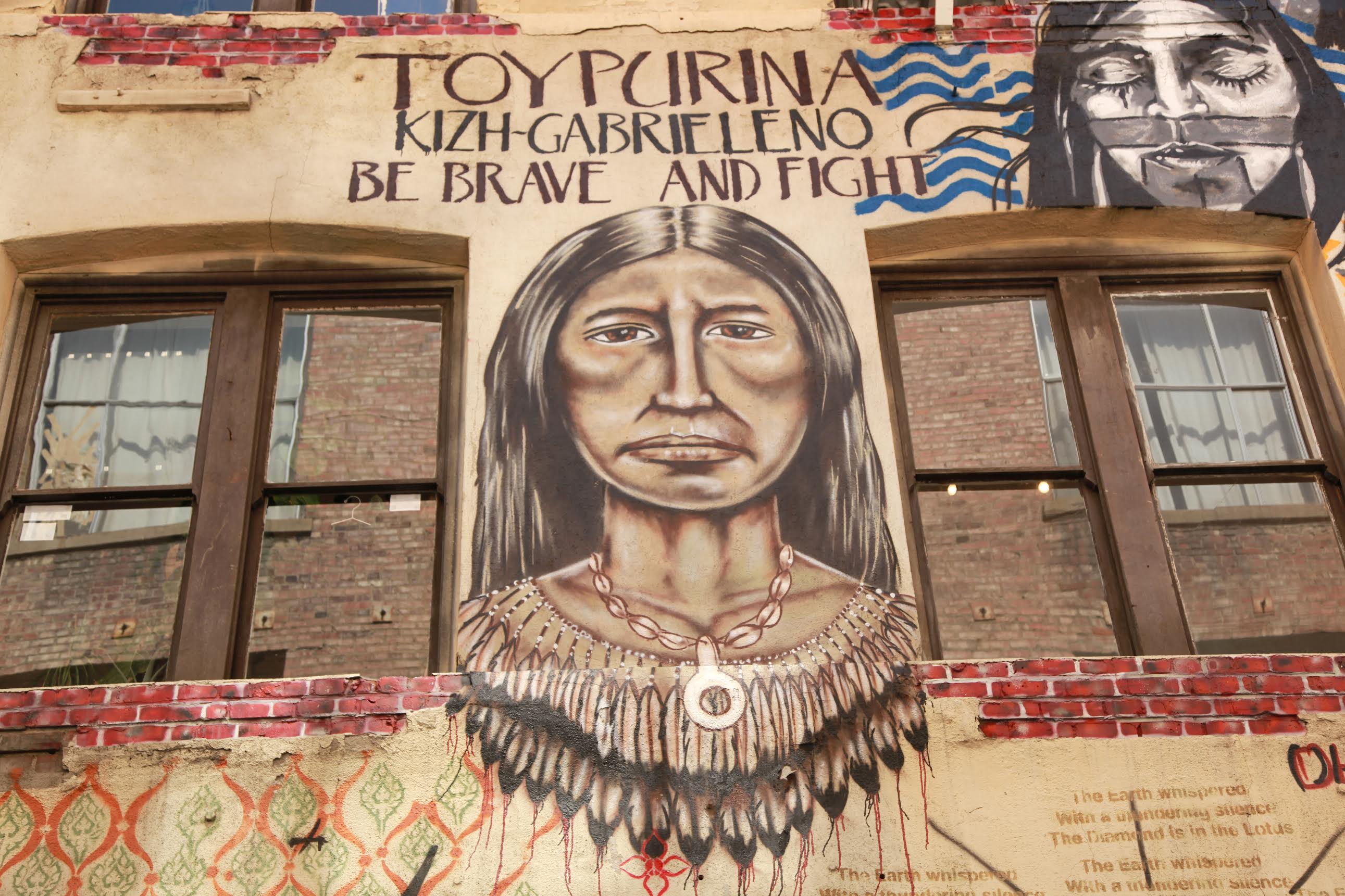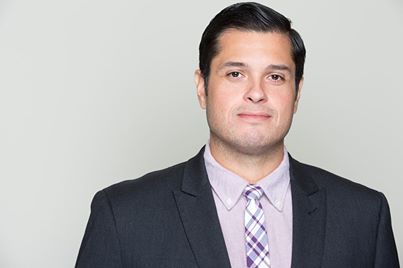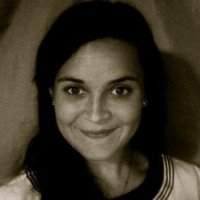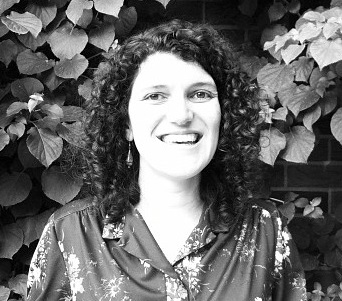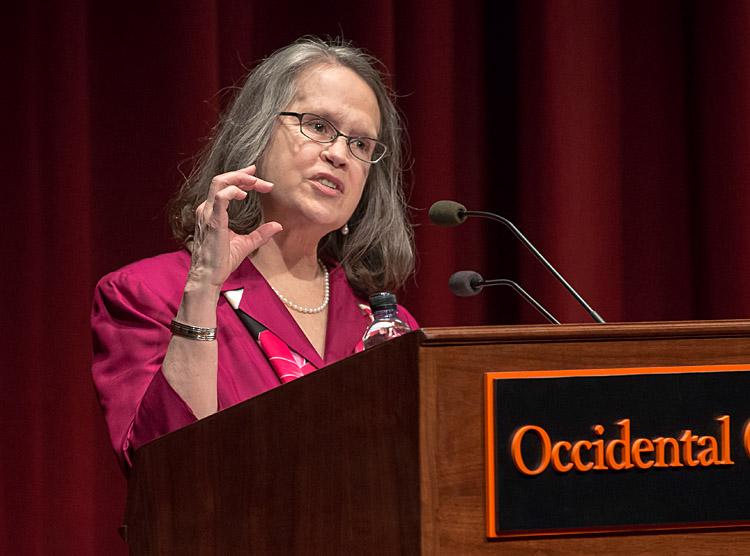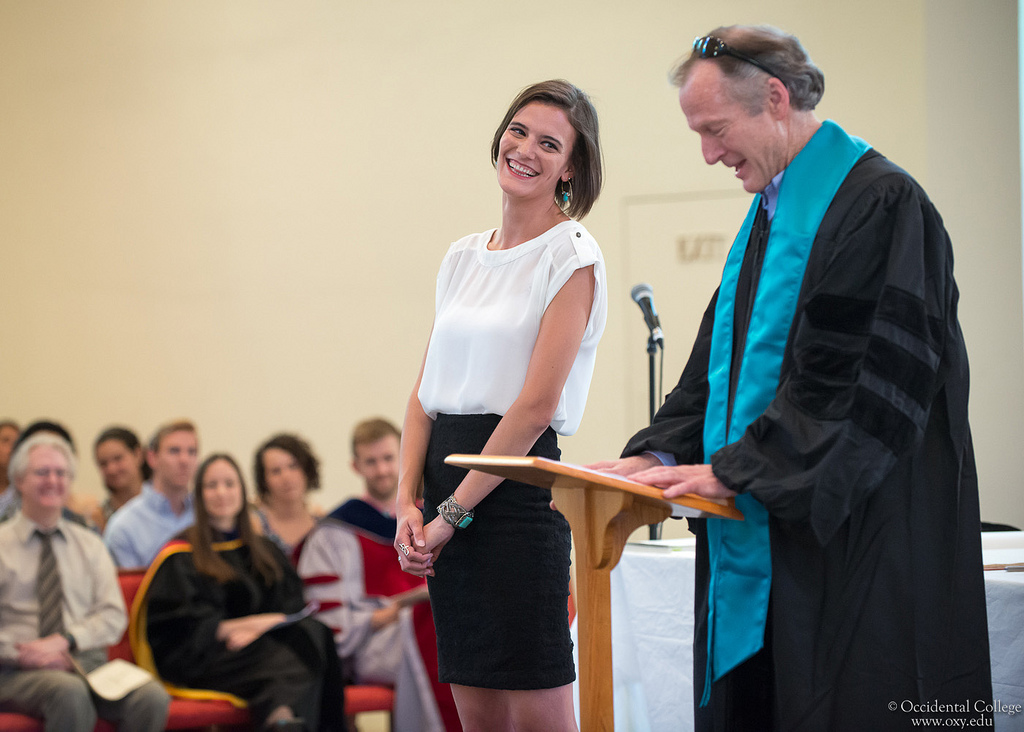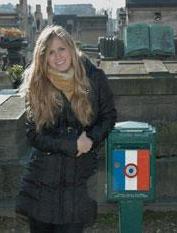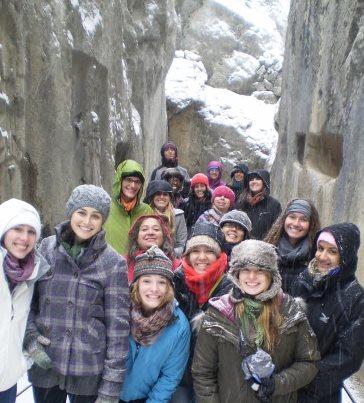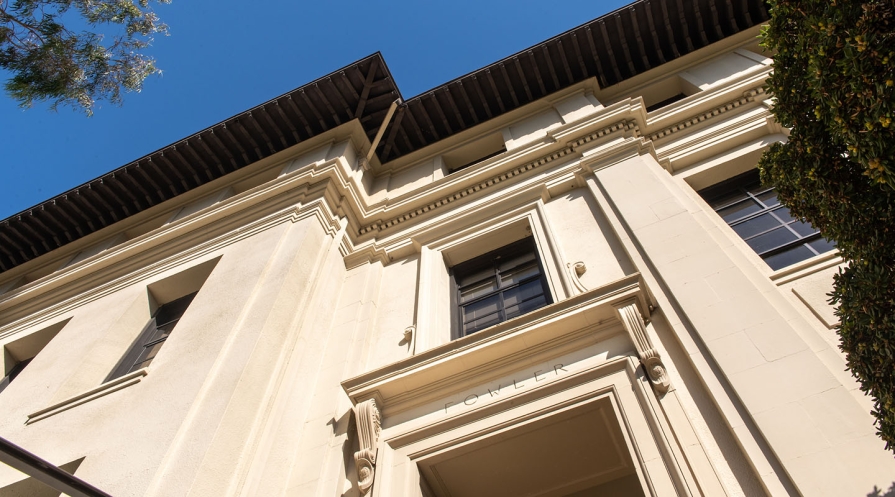
Something exciting is always happening in the Religious Studies department! Read on to find out what’s new this year.
This year we had another exciting year in the Department! We offered a variety of exciting courses that represented different religious and cultural communities across time and space, including The History of the Devil; Jews, Judaisms, and Jewish Identities; Religion and Climate Change; Religion and Horror; What is Shari’a? Justice, Law, and Ethics in Islam; Gendering Jews in Southwest Asia and North Africa; Islam and Capitalism; and Holy Sh*t! Engaging the Materiality of Religion.
Our graduating seniors completed amazing comprehensive projects based on their coursework and research at Occidental. Lucia Granja wrote about religion and colonialism in horror films, and Claire Kosek researched the modern development of Jihad.
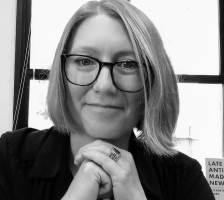
We were delighted when our colleague Professor Kristi Upson-Saia, the David B. and Mary H. Gamble Professor of Religious Studies, was awarded the Graham L. Sterling Memorial Award, awarded to distinguished members of the Occidental faculty to acknowledge outstanding records. Professor Upson-Saia was nominated by her colleagues in recognition of her exceptional scholarship, her distinguished service at the College, and for inspiring her students with her amazing teaching. Professor Upson-Saia joined the Dean’s Office this year as Associate Dean for Faculty Affairs, and along the release of her latest book, Medicine, Health, and Healing in the Ancient Mediterranean in 2023, this seemed like an ideal time to celebrate her stellar work that has enriched our department and the College.
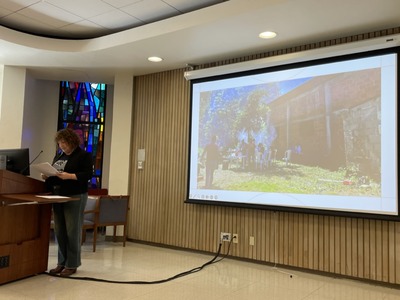
Students in Religious Studies courses had the opportunity to learn from scholars carrying out cutting edge research across different fields. Some of our visitors this year included Professor Jamel Velji (Claremont McKenna College) who discussed the connected histories of Islam and coffee; Professor Rebecca Bartel (San Diego State University) who talked to students about connections between microfinance and faith in Colombia; Professor Sarah Abrevaya Stein (University of California-Los Angeles) who discussed the Holocaust in North Africa; Professor Zaira J. Vidal-Cortes (University of California-Riverside) who discussed Brujeria in the modern history of the Americas; Professor Andrew Britt (University of North California School of Arts) to talk about his work on an augmented reality reconstruction of a historic Black church in central São Paulo; and Professor Pasang Yangjee Sherpa (University of British Columbia), the visiting Chan professor in Asian Studies, who shared her research on Sharwa worldviews and wellbeing in the era of climate change.
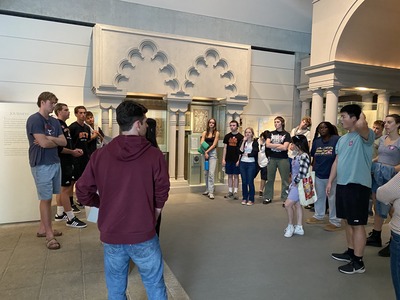
Students also learned about religion in practice in communities in LA. In both Fall and Spring, Visiting Assistant Professor of Jewish Studies Chelsie May collaborated with SoCal institutions including the Skirball Cultural Center, The Wende Museum, and The Center for the Study of Political Graphics to provide students with access to some of their amazing primary source archives related to Jewish communities and political movements, inspiring students in the development of innovative research. And in the fall as part of a new course on religion and utopia, Professor Michael Amoruso took first-year students to the Self-Realization Fellowship on Mt. Washington, where they learned about the organization, its history, and monastic life at the site. He also invited the Semi-Tropic Spiritualists to class, where they talked with students about their art and performance work related to California’s utopian and alternative religious movements.
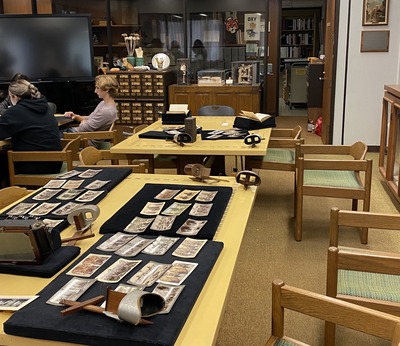
On campus, the Department also collaborated with different offices and areas. The team in Special Collections in the Library were wonderful hosts for several of our classes. In Professor May’s Jerusalem class in the Fall, students looked at nineteenth century stereoscopes of Jerusalem. In Professor Holmes-Tagchungdarpa’s Spring class Holy Sh”t!, students explored examples of material religion in our campus archives.
Professor Chelsie May coordinated our first ever Religious Studies book club. Students read Claire Stanford’s acclaimed novel Happy for You (2023), which explores issues of Jewish and Asian American identity. Professor May and students met several times during the semester and in their final meeting, with the author Claire Stanford to discuss the book. This was a wonderful way to bring together community on campus.
Students also wrote and created amazing and insightful work for their classes. In Professor Diaz's History of the Devil course in the Spring, every week students submitted "wicked art assignments" as a way of illuminating artistic interpretations of the devil. Given the option to create original artwork or photograph art around LA, students played an active role in portraying the devil as a manifestation of unique expression and subversion. Keeping with this mischievous spirit of play and intellect, each student created an original research zine project about a particular social history of the devil that blended complex research with distinct visuals.
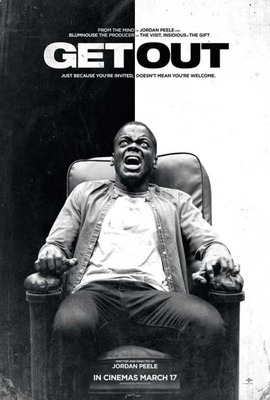
In Professor J Selke’s course Religion and Horror in the Fall, students ranked the films they studied as part of the course, which delved into the representation of religion in horror cinema since the 1970s. Here was the order of their final ranking, based on critical reviews they carried out in the course:
- 1. Get Out (2017)
- 2. Carrie (1976)
- 3. The VVitch (2015)
- 4. The Void (2016)
- 5. The Conjuring (2013)
- 6. Midsommar (2019)
- 7. Annihilation (2018)
- 8. Sinister (2012)
- 9. The Vigil (2021)
- 10. The Mist (2007)
- 11. The Exorcist (1973)
- 12. The Ritual (2017)
Which film haunts you the most? Let us know through our department Instagram, @stepintorels!
We want to send Professor Selke a huge congratulations - they have accepted a 2-year visiting assistant professor position in Christianity and Literature at Lafayette College in eastern Pennsylvania. Thank you for your amazing courses and work with students at Oxy, Professor Selke, and very good luck for your move!

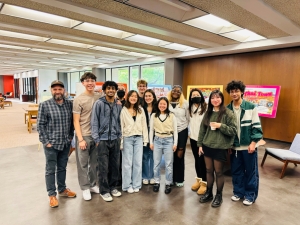
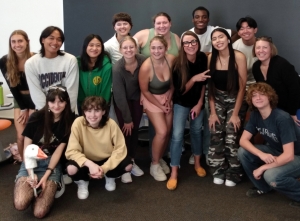
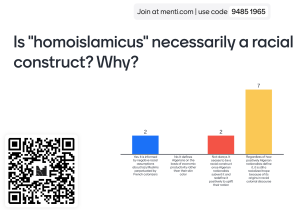
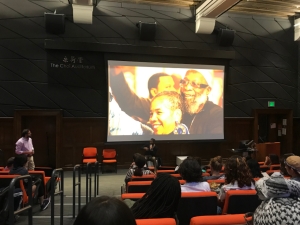

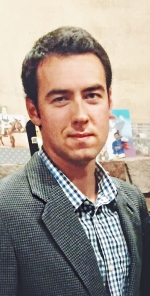
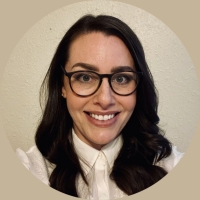
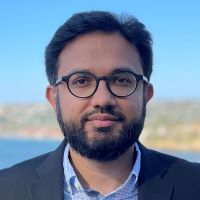 We are excited to share the excellent news that Professor Sohaib Khan will be joining us in the Fall semester of 2023 as a Mellon Postdoctoral Fellow in Islamic Studies, which will become a continuing Assistant Professor position in his second year. Professor Sohaib Khan is a scholar of comparative Islamic studies interested in connections between religion, secularism and economic life in Muslim societies. His research, teaching and public scholarship lie at the intersection of Islamic studies, anthropology, postcolonial studies, and area studies of South Asia and the Middle East. Trained as an interdisciplinary historian and ethnographer, Professor Khan received his Ph.D. (2020) from Columbia University’s Department of Middle Eastern, South Asian and African Studies (MESAAS) and the Institute of Comparative Literature and Society (ICLS), and is joining us from Pomona College. Welcome Professor Khan!
We are excited to share the excellent news that Professor Sohaib Khan will be joining us in the Fall semester of 2023 as a Mellon Postdoctoral Fellow in Islamic Studies, which will become a continuing Assistant Professor position in his second year. Professor Sohaib Khan is a scholar of comparative Islamic studies interested in connections between religion, secularism and economic life in Muslim societies. His research, teaching and public scholarship lie at the intersection of Islamic studies, anthropology, postcolonial studies, and area studies of South Asia and the Middle East. Trained as an interdisciplinary historian and ethnographer, Professor Khan received his Ph.D. (2020) from Columbia University’s Department of Middle Eastern, South Asian and African Studies (MESAAS) and the Institute of Comparative Literature and Society (ICLS), and is joining us from Pomona College. Welcome Professor Khan!